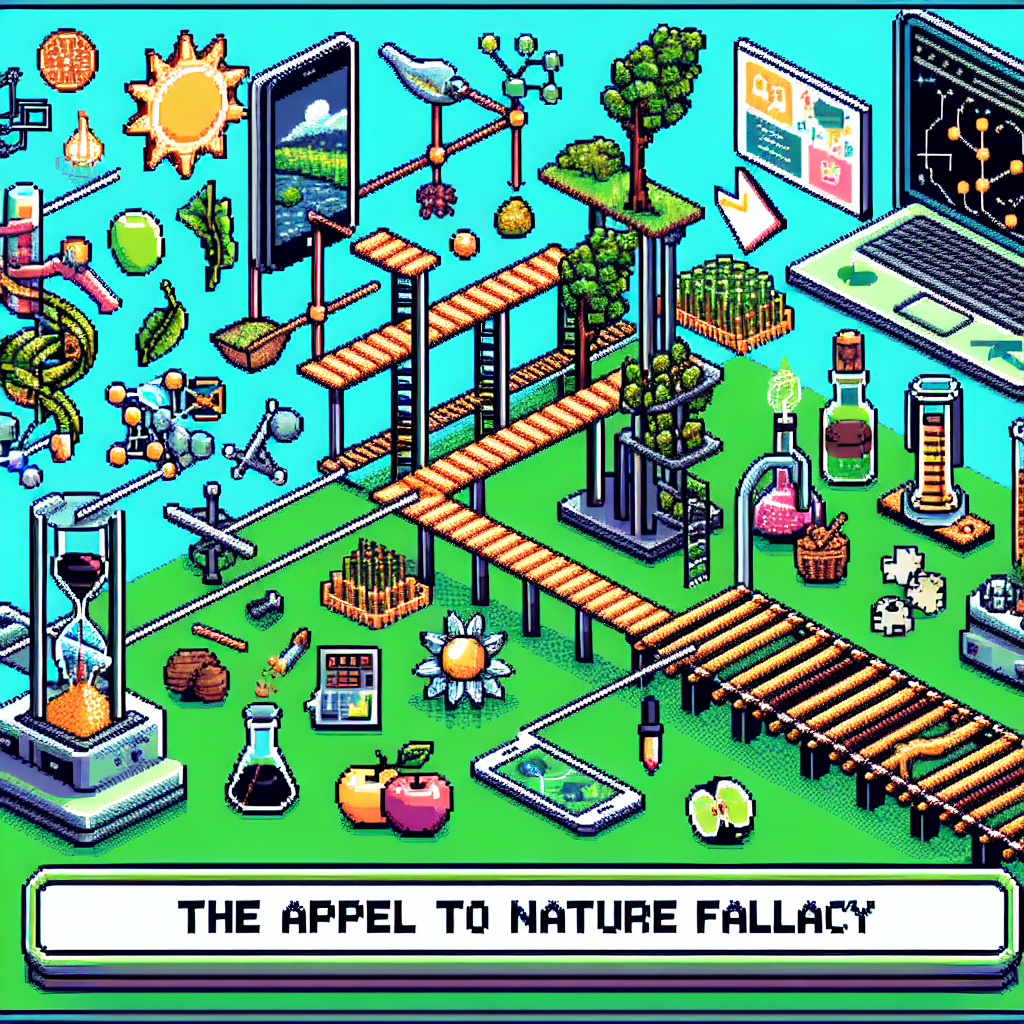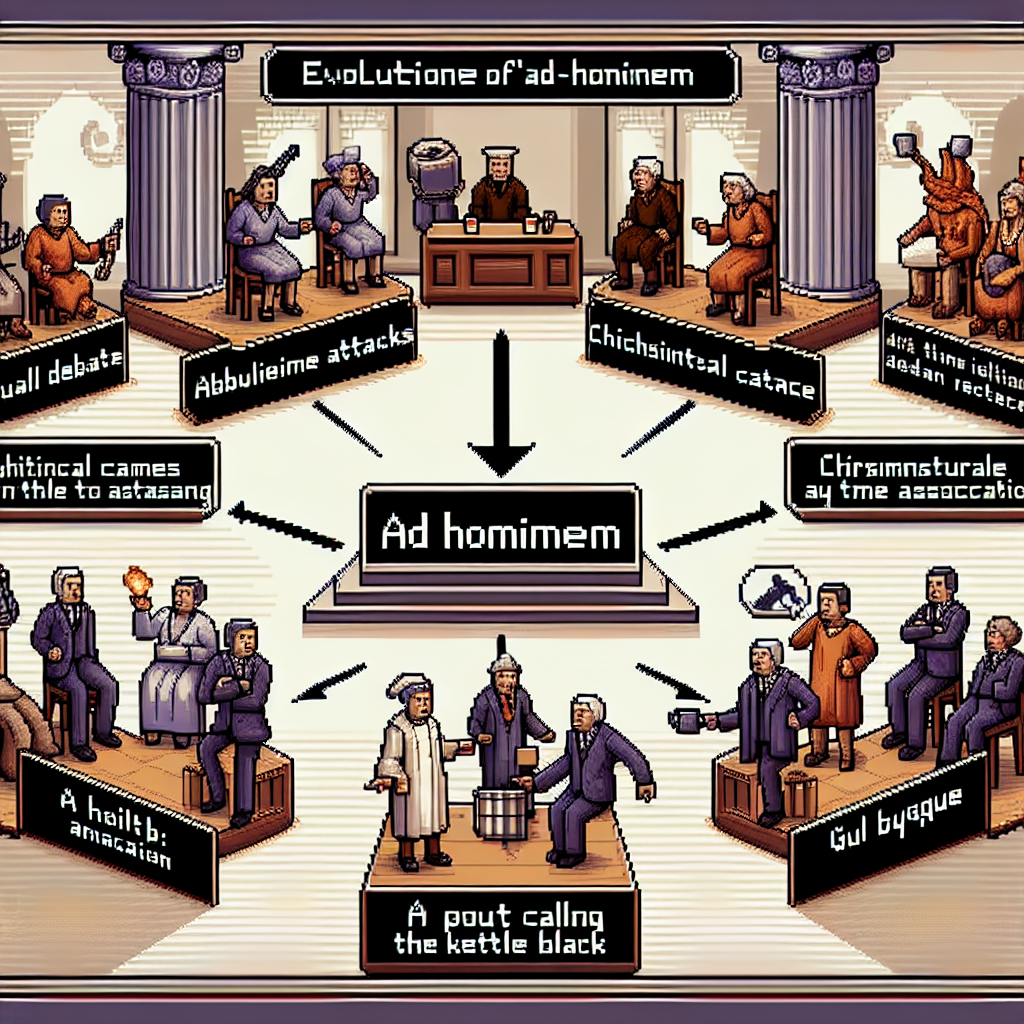Introduction: Appeal to Nature
Explanation of the Appeal to Nature Fallacy
The Appeal to Nature fallacy is a logical misstep where people erroneously conclude that something is good or true solely because it is perceived as “natural.” Despite its widespread use, this fallacy is often based on simplified or romanticized notions of nature. During discussions on various topics, individuals might overlook important nuances and complexities, leading to misleading conclusions.
Overview of the Article’s Purpose and Scope
This article aims to dissect the historical roots and contemporary examples of the Appeal to Nature, offering readers a nuanced understanding of its psychological and social underpinnings. Additionally, it explores the scientific perspective and examines the role of digital marketing in perpetuating this fallacy. Before delving deeper, the article addresses criticisms and challenges associated with the fallacy, providing insights into future trends and potential regulatory impacts. The ultimate goal is to equip readers with a critical lens to evaluate claims that might otherwise seem appealing at face value.
Historical Context of the Appeal to Nature
Origins and Development Over Time
The Appeal to Nature has a rich historical background that dates back to ancient times when humans first began distinguishing between the natural and the unnatural world. Over centuries, this notion has evolved dramatically, influencing various philosophies and cultures.
Key Philosophical and Cultural Influences
The concept found its roots in early philosophical discourse, particularly among figures like Aristotle, who considered natural phenomena superior. Additionaly, the Renaissance period saw a significant resurgence of interest in the natural world, further embedding this idea into societal norms.
During this era, the appeal gained a foothold in multiple cultural practices, which eventually shaped collective attitudes toward nature. Despite changes over time, the core belief that nature is inherently better than anything artificial continued to thrive among people.
Thus, the Appeal to Nature persisted as a fundamental aspect of how societies evaluated the interaction between humanity and the environment, setting the stage for its influence in contemporary contexts.
Appeal to Nature: Contemporary Society Solutions
Food and Nutrition Industries
In order to address the Appeal to Nature fallacy in the food and nutrition industries, companies should prioritize transparency about ingredients and production processes. Additionally, educating consumers on the nutritional value of both natural and synthetic ingredients can pave the way for informed choices. Collaborative efforts between regulatory bodies and industry leaders will ensure that nutritional claims are both scientifically accurate and clearly communicated.
Healthcare and Alternative Medicine
Healthcare professionals must provide evidence-based information that challenges the notion that “natural” treatments are inherently better. By emphasizing research-backed therapies and fostering open communication with patients, misconceptions surrounding the Appeal to Nature can be effectively reduced. Consequently, this informed approach promotes a balanced understanding of healthcare options.
Environmental Movements
During discussions about sustainable practices, environmental movements can counter the Appeal to Nature by incorporating technology-driven solutions. These innovations can enhance sustainable development without romanticizing the past. By doing so, they can garner broader support and make lasting impacts on ecological conservation efforts.
Consumer Products and Marketing Strategies
Despite marketing strategies often leveraging “natural” labels to appeal to consumers, companies should instead adopt honest advertising principles. Highlighting the functional benefits and safety profiles of products, regardless of their origin, can help dismantle reliance on the Appeal to Nature and establish consumer trust. By approaching marketing ethically, brands can drive informed and rational consumer behavior.
Psychological and Social Reasons Behind the Appeal to Nature
Cognitive Biases and Heuristics
The Appeal to Nature often exploits cognitive biases, leading individuals to assume natural products are inherently better. Before making decisions, understanding these biases can help consumers critically evaluate product claims. By educating the public about these biases, we can foster more informed consumer behavior.
Influence of Media and Popular Culture
Media and popular culture contribute significantly to the Appeal to Nature. During exposure to persuasive messages, individuals often accept natural claims without scrutiny. However, encouraging more diverse representation of both natural and synthetic options can provide consumers with a balanced perspective.
Societal Trends and Urbanization
Despite rapid urbanization, there’s a growing yearning for nature, driving interest in natural products. However, as societal trends evolve, promoting sustainable urban living options can balance this inclination, showing that innovation and nature can coexist harmoniously.
“`
Scientific Perspective on the Appeal to Nature
Case Studies and Research Evidence
The Appeal to Nature frequently eclipses scientific analysis, but researchers have consistently found evidence that natural products are not invariably superior to synthetic alternatives. Studies comparing natural and artificial substances often reveal that what is deemed ‘natural’ can vary immensely in benefit, safety, and effectiveness. Despite the notion that natural equates to better, science has shown that synthetic interventions can be equally or more efficient.
Misinterpretations in Scientific Contexts
Misunderstandings of what “natural” truly represents play a major role in these misconceptions. Often, consumers and businesses alike fail to recognize the rigorous processes that synthetic products undergo for safety and efficacy. During the complex evaluations, natural substances may lack equivalent scrutiny. Consequently, emphasizing scientific understanding can counter the allure of the Appeal to Nature, providing a balanced view that integrates both natural and synthetic insights.
The Role of Digital Marketing and SEO in the Appeal to Nature
Leveraging the “Natural” Label in Online Content
The term Appeal to Nature has become a powerful tool in digital marketing, especially as consumers increasingly gravitate towards products labeled as “natural.” Marketers exploit this tendency by employing strategic keywords and ensuring that content aligns with consumer biases. This enhances the perceived authenticity of products, in turn boosting sales. However, the misuse of “natural” can be misleading.
Common SEO Practices and Strategies
SEO experts frequently incorporate the Appeal to Nature in their strategies. By analyzing consumer search behavior, they optimize content to target popular, nature-related keywords. Additionally, marketers enhance webpages with imagery and language that emphasize the natural qualities of a product.
Ethical Considerations for Marketers
Despite the effectiveness of these strategies, ethical considerations are crucial. During the creation of marketing material, it is essential to maintain transparency about what “natural” truly signifies. Upholding integrity ensures that consumers are not misled and that companies remain reputable.
Case Study: Addressing Misconceptions in the Appeal to Nature
Background
In recent years, the beauty industry has seen a rising trend in the popularity of products labeled as natural. Despite minimal scientific evidence supporting the superior effectiveness of natural ingredients, consumers often perceive them as safer and more beneficial. This Appeal to Nature has led to misunderstandings.
Challenges
Many brands capitalize on this trend by marketing synthetic ingredients as inferior, even when they are proven to be efficacious. Consequently, consumers face confusion and make purchasing decisions based on misconceptions rather than facts.
Solution
Educating consumers is key to counteracting this Appeal to Nature. During marketing campaigns, brands should provide clear, evidence-based information about the safety and effectiveness of both natural and synthetic ingredients. Additionally, regulatory authorities can play a role by enforcing strict guidelines on the use of natural claims, ensuring that consumers are not misled.


